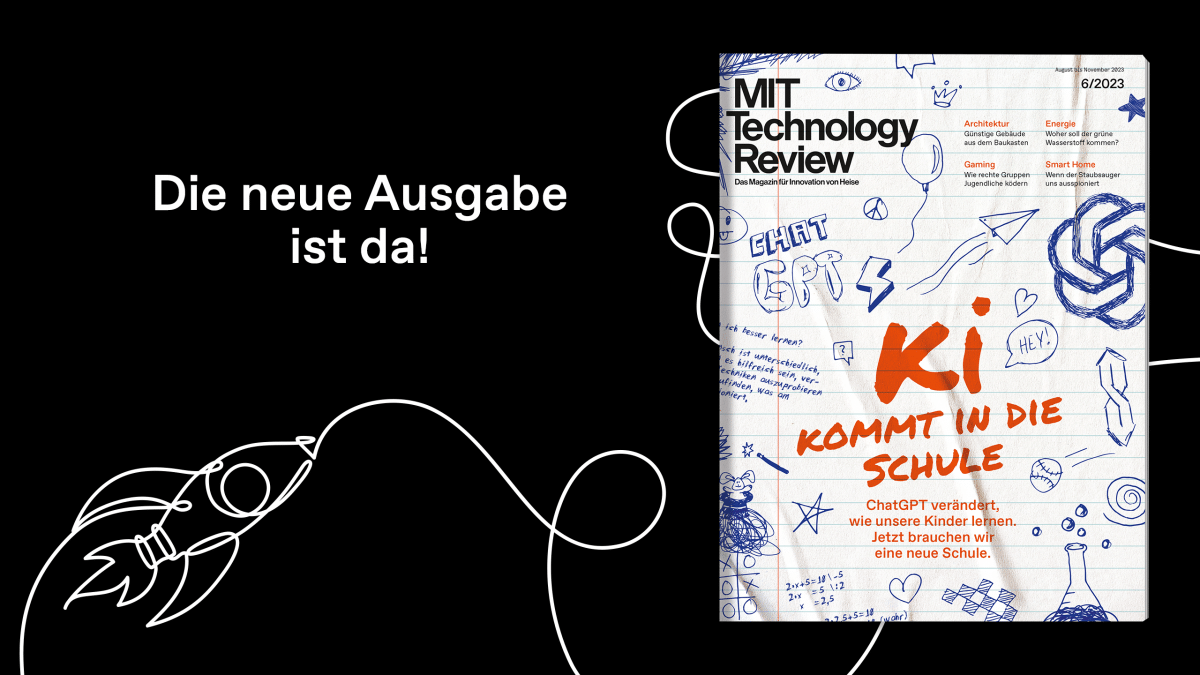MIT Technology Review 6/23: How AI is influencing our school system
The exercises for the next math work come from ChatGPT – and the explanation for the calculation as well. Math is just one example of how strong generative AI already has an influence on learning and could have in the future. Because ChatGPT and Co. question the extent to which the classic transfer of knowledge in the classroom still makes sense if, in the future, an AI will provide almost all the knowledge in the world within seconds in the required form. How can schools react to this?
Advertisement
AI comes to school
More individual learning, tasks adapted to the learning level, strengthening analytical skills, less repetitive tasks and memorization: This not only changes how teachers classify the achievements of the students – after all, transfer achievements would play a much more important role, and they cannot simply be like quizzed knowledge evaluate. This new learning also fits much better with the required skills for the job market of the future – the often quoted four Cs: communication, collaboration, creativity and critical thinking. The cover story “AI comes to school” by TR editor Andrea Hoferichter and TR editor Will Douglas Heaven sheds light on this complex of topics.
Despite all the euphoria, however, the question arises as to how well digital tools are suitable for learning basic skills – for example reading. If students use a digital device for this, how great is the learning effect compared to printed paper? Is there any difference at all?
Software can not only help with learning, but also capture the atmosphere in the classroom. Teachers in Denmark use special apps for this. This is interesting because mental illnesses among students are also an increasing problem in Germany: between 2000 and 2017, the number of children with depression under the age of 15 increased tenfold, according to the Federal Statistical Office. The pandemic has actually amplified this trend.
ChatGPT and Co. question the extent to which the classic transfer of knowledge in the classroom still makes sense if, in the future, an AI will provide almost all the knowledge in the world within seconds in the required form. How can schools react to this? The new issue of MIT Technology Review addresses this question. Highlights from the magazine:
Other highlights of the issue
Advertisement
right-wing extremism: Roblox is one of the largest gaming platforms in the world. Millions of children and young people spend time on it. However, there are not only viral game hits there, but also right-wing extremist propaganda.
Biotechnology: CRISPR faces serious competition from designer recombinases: they not only cut the genome extremely precisely, they also repair it immediately. The first clinical study with HIV patients is expected to start in autumn.
Architecture: Building a house often takes longer than planned and is usually even more expensive. A new form of construction now promises to erect buildings in a few weeks at calculable costs.
Smart Home: Smart devices promise convenience. But the added convenience comes at the cost of more surveillance.
Read MIT Technology Review here:
(lca)
To home page
